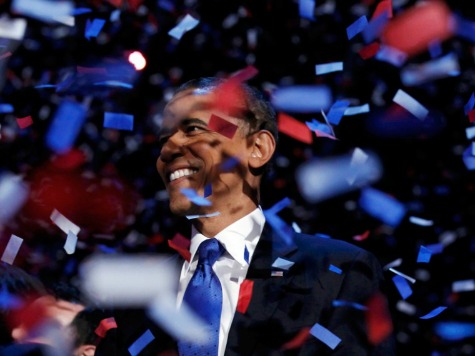
Roberto and William Isaias, Ecuadorian fugitives convicted of embezzlement by that nation’s socialist government, donated “hundreds of thousands” of dollars to United States politicians, including President Obama, while living exiled in Miami, The New York Times reports.
The brothers, whose background as president and vice president of a bank generated enough revenue to afford such campaign contributions, funneled $90,000 into President Obama’s reelection campaign, according to the Times. The money reached the campaign legally through a network of family members. A year later, President Obama rejected the request from Ecuadorian President Rafael Correa to have the brothers extradited. The brothers were sentenced in absentia long after fleeing Ecuador; they left their country after the bank they operated, Filanbanco, collapsed.
The brothers’ struggle to flee the oppressive socialist atmosphere in Ecuador has implicated a number of Congresspeople across the aisle, as well. Both Rep. Ileana Ros-Lehtinen and Senator Robert Menendez–of Florida and New Jersey, respectively–sent letters urging the government not to extradite them to Ecuador. Ros-Lehtinen, a Republican, and Menendez, a Democrat, are both Cuban exiles.
The brothers have become bargaining chips to President Correa, whose embassy in the UK houses fugitive Julian Assange and who extended asylum to former NSA contractor Edward Snowden. In what Correa called a “very cordial” conversation with Vice President Joe Biden over Snowden last July, he explained to the press that Biden told him that “for us it is a very grave situation, so we would request that if Snowden arrives on Ecuadorian soil, you return him to us immediately.” Correa added, “Then I mentioned the Isaias case, he knew of it, we argued a bit on the matter. He said, ‘It’s different,’ and I said, ‘Yes, it is more grave,’ but we did not arrive at any conclusion.”
While the appearance of impropriety certainly exists in the case, the contributions were not illegal, and the integrity of the Ecuadorian justice system brings into question the accuracy of the embezzlement conviction involved. Those who support the Isaias brothers describe them as exiles, not fugitives, fleeing a socialist government modeled after Hugo Chávez’s Venezuela. Human Rights Watch writes in their 2013 report on Ecuador that “corruption, inefficiency, and political influence have plagued Ecuador’s judiciary for years,” and that a 2012 international observation called for the removal of over 2,000 judges for corruption or inadequacy on the job. President Correa is notorious for trampling on the rights of free media while antagonizing the United States and the UK for pursuing Julian Assange, who has lived in the Ecuadorian embassy in London for years. There is no way to trust Ecuador’s judicial system to have been fair to the Isaias brothers.
Nonetheless, critics will note that there is a conflict of interest when someone a foreign nation seeks to extradite is actively participating in American political campaigns. And this is not the only realm in which American-based entities have been accused of conflicts of interest that implicate their attitudes towards the Isaias brothers. A former CNN en Español reporter, Alberto Padilla, who was fired in 2011 as part of a massive overhaul of the network, has claimed that the Isaias brothers, through a public relations firm, have helped plant stories against Correa on CNN for years.

COMMENTS
Please let us know if you're having issues with commenting.